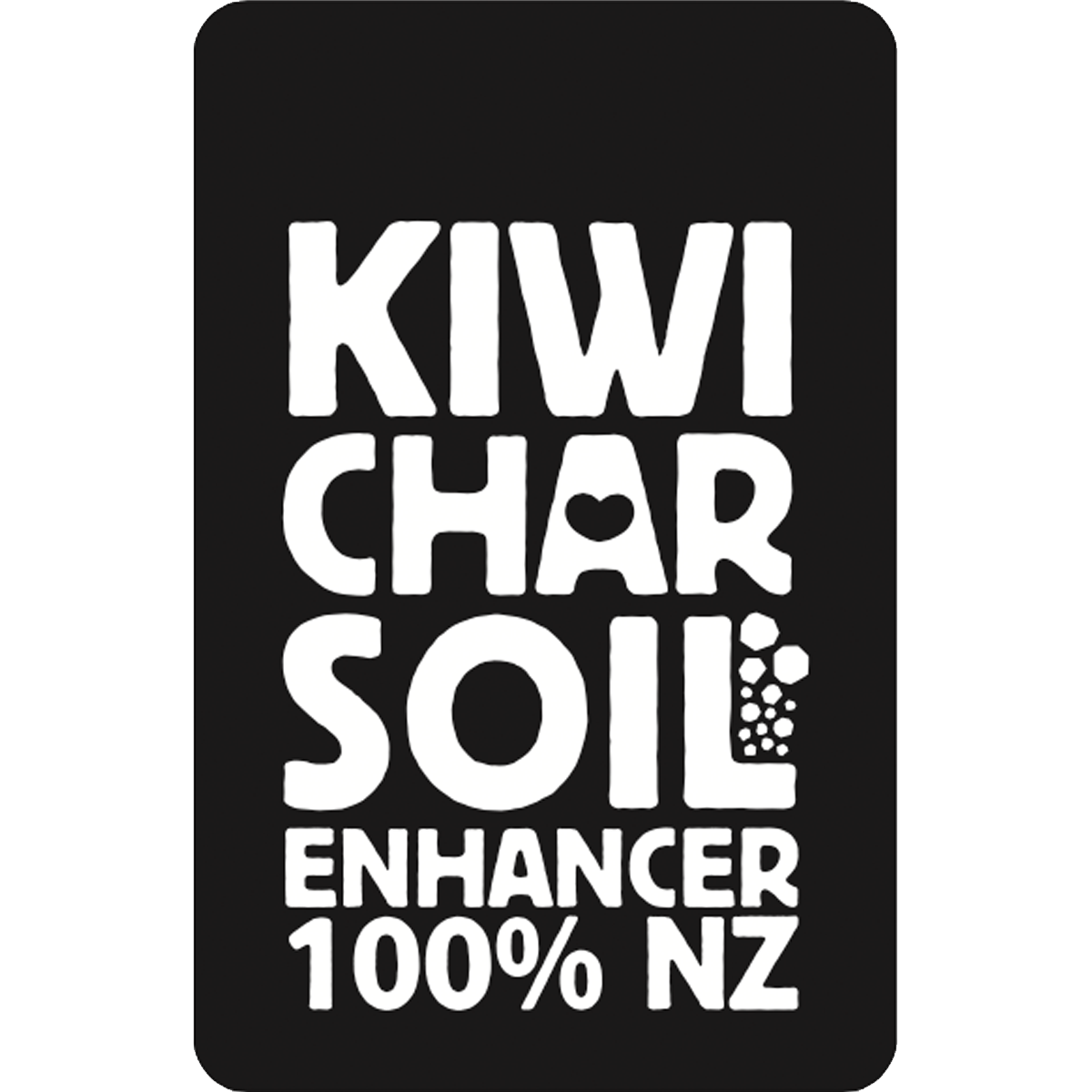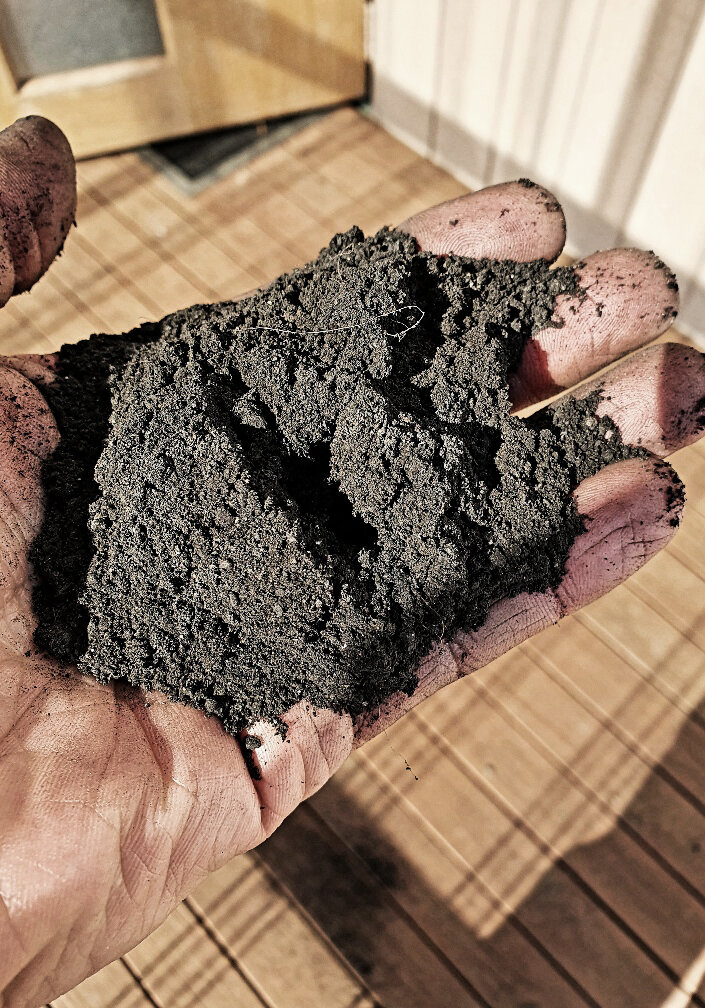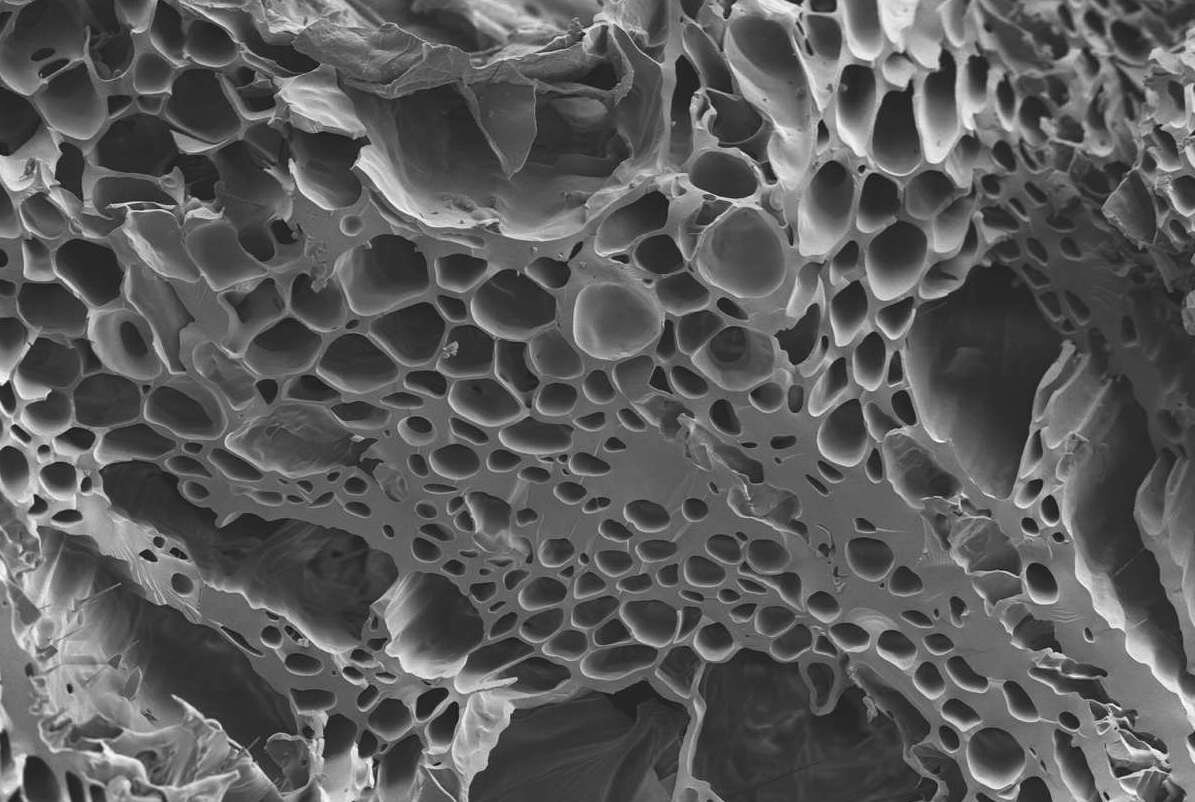Biochar is charcoal. KIWICHAR is made up of 100% organic non-treated Radiata pine. This organic material optimises the ability of the product to retain and purify water as well as make available associated nutrients - either applied or within the soil. When 'treated' wood is used to manufacture biochar the efficacy of these key characteristics is potentially compromised and the quality of the product is negatively affected.
What is KIWICHAR?
How is KIWICHAR made?
KIWICHAR is made by Pyrolysis. Effectively, this is the breaking down (lysis) of material by heat (pyro). In the case of our biochar pinewood is burned in a furnace at a consistent temperature of around 400 degrees C* in the absence of oxygen, and is used as a soil ameliorate for both carbon sequestration and soil health benefits. Biochar is a stable solid that is rich in carbon. All of our biochar is sourced from a single site in Rotorua.
If you look at a single particle of biochar you can see how it comprises of thousands of tiny pores (micro-pores) each one of these pores assists in the retention of moisture by increasing the surface area of the particle exponentially! Each particle is capable of holding up to 4 times greater weight in moisture than its own dry weight. Through its innate ability to retain moisture and the associated nutrients that are contained within that moisture, we can increase soil moisture (%) content by up to 40%*. Being high in Carbon, also means that biochar is a great sequestrum of Carbon and as such has been identified as a highly effective means of 'locking up' carbon in the soil and supporting a reduction in GHG emissions. *Compared to non treated soils.
How does it work?
Soil moisture retention (drought conditions), soil nutrient retention (assisting in stabilising applied and pre-existing nutrients within the soil and making them available to plants for a far longer time). Carbon sequestration, microbial activity (the range and diversity of soil microflora and fauna will increase with the use of biochar within the soil ecosystem), and enhanced plant shooting and rooting.
What is KIWICHAR good for?
Properties of KIWICHAR?
Durability: A carbon matrix which changes very little in the presence of chemical and biological activity (recalcitrance).
Surface area: microscopic pore structure which provides immense internal surface area and optimum habitat for soil microbiota. This porosity also makes biochar an ideal amendment for increasing aeration and water retention of soils.
CEC: high cation exchange capacity, which gives biochar superior adsorption qualities and provides the ability to bind minerals and retain dissolved nutrients.
pH management: Biochar can lift pH of acid soils or help buffer growing media.



